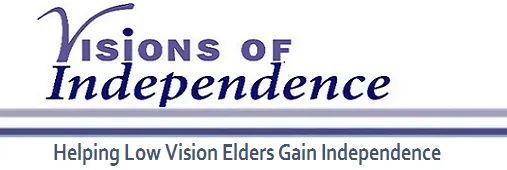Low vision and depression
Results from a Lighthouse study in 2005 suggests that 34.1% of low vision patients showed major or sub-threshold depression. Ophthalmologists whom we have spoken to believe that the more accurate number is over 50 percent. While we are not psychologists, we do hear from our patients who tell us all the losses that they face because of their vision problems. Besides the obvious loss of vision, our low vision patients face many other significant losses:
- Independence: The loss of being able to drive anywhere at anytime. Getting to places now means being totally dependent on someone else or a transportation system and fitting into their schedules.
- Privacy: Bills and letters, most often, have to be read to them. Now, someone else knows their affairs.
- The ability to do the things that used to be done with ease; playing music, sewing, woodworking, cooking favorite family recipes,
- The many little accidents; pouring and then spilling, knocking over or into things or missing the toothbrush when applying toothpaste.
When all the above is taken together, it can be easily seen how someone who has lost vision loses self-esteem. As we have heard, "I can't even pour a cup of coffee for myself without making a mess." Vision rehabilitation increases independence and self-esteem which are very powerful factors that can reduce depression.
